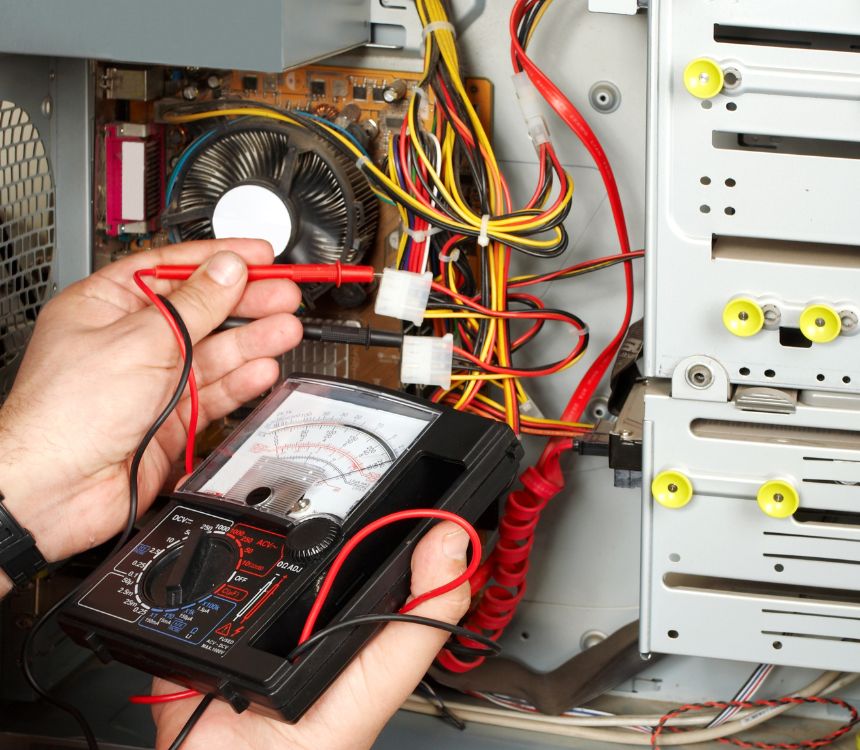Electrical safety certificates play a crucial role in property safety in the UK. Whether you are a homeowner, landlord, or tenant, understanding these certificates is essential. In this guide, we’ll explore when and why you might need an electrical safety certificate, what it entails, and the legal requirements you must be aware of.
What is an Electrical Safety Certificate?
An electrical safety certificate, formally known as an Electrical Installation Condition Report (EICR), is a document issued after an inspection of the electrical installations in a property. It ensures that the wiring, outlets, fuse boxes, and other electrical components meet UK safety standards. The report identifies any defects, potential hazards, or non-compliances that need to be addressed to prevent electrical accidents.
Get Your Electrical Safety Certificate Now
Ensure your property is safe—schedule your electrical safety inspection today!
Who Needs an Electrical Safety Certificate?
Landlords
If you’re a landlord in the UK, you are legally required to have an electrical safety certificate for your rental property. Since July 2020, new regulations state that all rental properties in England must have an up-to-date EICR. These regulations extend to existing tenancies from April 2021. Failure to comply could result in hefty fines or legal action.
The rules are in place to ensure the safety of tenants, and landlords must provide a copy of the EICR to new and existing tenants, as well as local authorities upon request. The certificate must be renewed every five years or sooner if recommended by a qualified electrician.
Homeowners
For homeowners, obtaining an electrical safety certificate is not legally required but highly recommended, especially if you are buying or selling a property. An EICR provides peace of mind by confirming that the property’s electrical system is safe. It can also be a powerful negotiation tool, as properties with certified safety standards may have a higher market value.
Moreover, if you plan to carry out any major electrical work or renovations in your home, getting an EICR before and after the work can ensure everything is up to code and avoid potential hazards.
Tenants
While tenants are not directly responsible for arranging an EICR, they should be aware of their rights. Landlords must provide tenants with a copy of the electrical safety certificate at the start of the tenancy and within 28 days of each subsequent inspection. Tenants should request a certificate if one is not provided, as it is their right to have a safe living environment.

When Should You Get an Electrical Safety Certificate?
For landlords, it’s essential to have an EICR before letting a property to a new tenant and every five years thereafter. If you’re a homeowner, consider getting an EICR before selling or if you notice any of the following warning signs:
- Frequent power outages or tripped fuses
- Outlets or switches that are warm to the touch
- Flickering or dimming lights
- Buzzing noises from electrical systems
These are signs that the electrical system may need professional assessment and repair.
What Does an Electrical Safety Certificate Inspection Involve?
An EICR inspection is carried out by a qualified electrician who assesses the condition of the electrical systems within your property. The inspection typically covers:
- Fuse box condition and functionality
- Wiring and circuitry
- Socket and switch safety
- Earthing and bonding
- Electrical appliances (if applicable)
After the inspection, the electrician will provide a detailed report highlighting any faults or potential hazards. These may be classified as:
- C1 (Immediate Danger): Requires urgent action, such as faulty wiring that poses a severe risk.
- C2 (Potential Danger): Needs attention but is not immediately dangerous.
- C3 (Improvement Recommended): Not unsafe, but improvement would enhance safety.
For landlords, any C1 or C2 issues must be fixed before renting out the property. The landlord must then provide written confirmation that the work has been completed.
Legal Requirements: A Summary
For Landlords: Legally required to have an EICR conducted every five years for rental properties.
For Homeowners: No legal obligation, but highly recommended, particularly when buying, selling, or renovating.
For Tenants: Right to receive a copy of the EICR from their landlord.
The Cost of an Electrical Safety Certificate
The cost of obtaining an electrical safety certificate in the UK varies depending on property size and location but generally ranges between £100 and £300. While this might seem like an expense, it’s a valuable investment for peace of mind and legal compliance, particularly for landlords.
Choosing a Qualified Electrician
It’s crucial to hire a certified and competent electrician to conduct the EICR. The electrician should be registered with a professional body such as NICEIC (National Inspection Council for Electrical Installation Contracting) or NAPIT (National Association of Professional Inspectors and Testers). This ensures they are qualified to perform the inspection and provide an official certificate.
In Closing
While not everyone is legally required to obtain an electrical safety certificate, it’s a prudent step towards ensuring the safety of your property and its occupants. For landlords, it is a legal obligation that must not be overlooked, and for homeowners, it’s a smart move to avoid potential hazards and boost property value.
So, do you need an electrical safety certificate? If you’re a landlord, the answer is an unequivocal yes. For others, while it may not be legally mandated, it’s undoubtedly a wise decision.
Further Reading